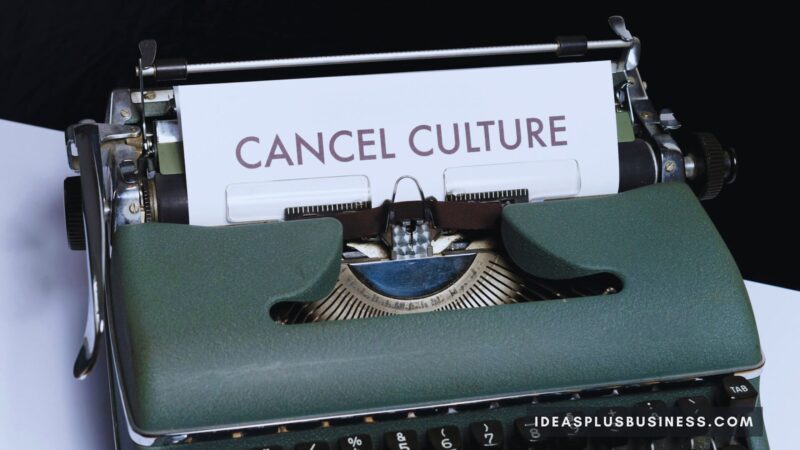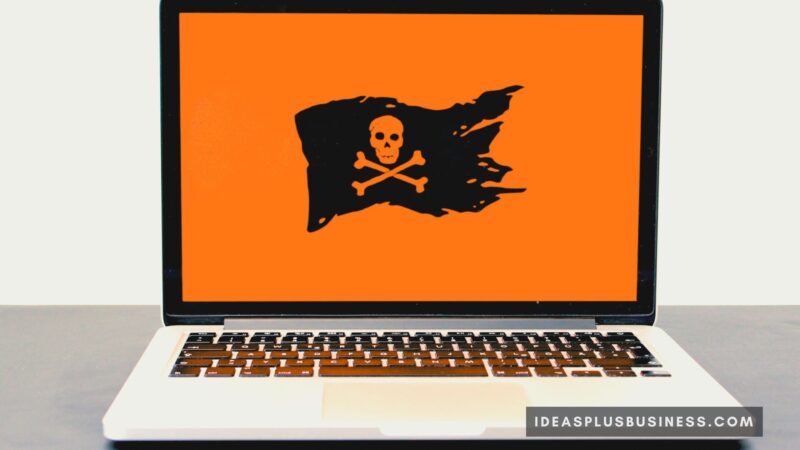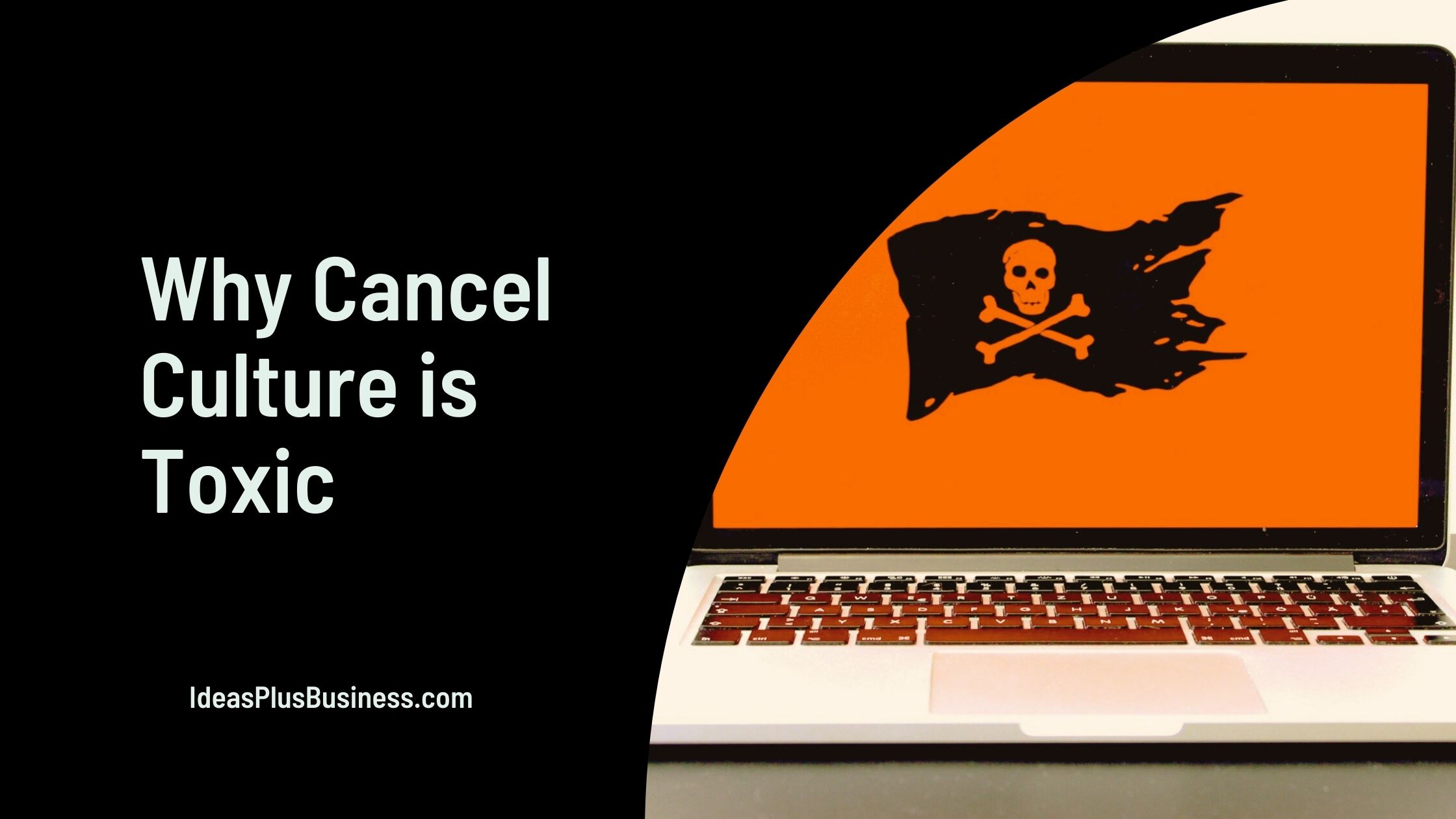Cancel culture is the practice of withdrawing support from individuals or organizations deemed to have acted unethically or inappropriately. There is no consensus on whether cancel culture is toxic or not, as it has both potential benefits and drawbacks.
Cancel culture can be seen as a way to hold individuals and organizations accountable for their actions.
When people or organizations are “canceled,” they may face public criticism, boycotts, or even loss of employment or other opportunities. This can serve as a deterrent to bad behavior and encourage people to be more mindful of the impact of their actions.
Cancel culture can also be seen as a form of bullying and harassment. It can be difficult for individuals and organizations to defend themselves against online mobs, and the consequences of being “canceled” can be severe. Cancel culture can create an atmosphere of fear and censorship, as people may be afraid to express their opinions for fear of being targeted.
24 Reasons Why Cancel Culture Is Toxic
It is important to note that there is no consensus on whether cancel culture is toxic or not.
Some people believe that it is a necessary tool for holding individuals and organizations accountable for their actions, while others believe that it is a form of bullying and harassment. It is important to weigh the potential benefits and drawbacks of cancel culture before forming an opinion.
While the concept of holding people accountable for their actions is not inherently negative, here are some reasons why cancel culture is toxic:
1. Lack of Due Process
Cancel culture often bypasses the fundamental principle of due process, where individuals are presumed innocent until proven guilty.
Instead, it thrives on allegations and accusations made in the court of public opinion, without providing the accused with an opportunity to defend themselves or address the claims fairly and impartially.

2. Overly Punitive Nature
Cancel culture tends to impose disproportionately harsh consequences on individuals for their perceived wrongdoings, often resulting in severe social, professional, and even financial repercussions.
This punitive approach can lead to a disproportionate response that does not always fit the alleged offense.
3. Suppresses Free Speech and Diversity of Thought
The fear of being “canceled” can stifle free expression and discourage individuals from expressing dissenting opinions or engaging in open dialogue.
This suppression of diverse perspectives undermines the principles of free speech and intellectual discourse, hindering the exchange of ideas necessary for societal progress.
4. Creates a Climate of Fear and Intolerance
Cancel culture fosters an environment of fear and intolerance, where individuals may self-censor or conform to prevailing ideologies to avoid being targeted.
This conformity stifles creativity, innovation, and critical thinking, as individuals may be reluctant to challenge prevailing norms or explore unconventional ideas.
5. Lacks Forgiveness and Redemption
Cancel culture often perpetuates a culture of perpetual condemnation, where individuals are defined by their past mistakes and denied the opportunity for redemption or rehabilitation.
This lack of forgiveness undermines the potential for personal growth and positive change, hindering efforts toward reconciliation and healing.
6. Mob Mentality and Online Harassment
Cancel culture frequently relies on social media platforms and online forums, where individuals may engage in mob-like behavior and targeted harassment against the accused.
This online vigilantism can have devastating effects on the mental health and well-being of the targeted individuals, contributing to a toxic online environment.
7. Diverts Attention from Systemic Issues
While cancel culture may focus on holding individuals accountable for their actions, it often overlooks the underlying systemic issues that perpetuate injustice and inequality.
By fixating on individual instances of wrongdoing, cancel culture distracts from the broader societal structures and institutions that require systemic reform.
8. Erosion of Empathy and Compassion
Cancel culture often fosters an environment devoid of empathy and compassion toward the individuals being targeted.
Instead of seeking to understand the complexities of human behavior and motivations, cancel culture reduces individuals to their mistakes, depriving them of basic humanity and empathy.
9. Censorship and Suppression of Artistic Expression
Artists and creatives may face censorship or self-censorship due to the fear of being canceled for their work, leading to the suppression of artistic expression.
This not only stifles creativity but also deprives society of diverse perspectives and cultural enrichment.

10. Impact on Mental Health
The intense scrutiny and public shaming associated with cancel culture can have severe repercussions on the mental health and well-being of the individuals targeted.
It can lead to anxiety, depression, and even suicidal ideation, highlighting the damaging effects of online harassment and public humiliation.
11. Selective Outrage and Hypocrisy
Cancel culture often exhibits selective outrage, where certain individuals or groups are disproportionately targeted, while others are given a pass for similar or even more egregious behavior.
This inconsistency undermines the credibility and integrity of cancel culture as a tool for social justice.
12. Stifles Innovation and Risk-Taking
In environments dominated by cancel culture, individuals and organizations may become risk-averse, avoiding controversial topics or innovative ideas for fear of backlash.
This stifles innovation and hampers progress, as society loses out on potentially groundbreaking advancements and transformative ideas.
13. Perpetuates a Culture of Victimhood
Cancel culture can perpetuate a culture of victimhood, where individuals may weaponize their perceived victim status to silence dissent or evade accountability.
This can undermine genuine efforts to address systemic injustices and foster a sense of entitlement or moral superiority among certain groups.
14. Undermines the Rule of Law
By circumventing established legal processes and resorting to extrajudicial forms of punishment, cancel culture undermines the rule of law and erodes trust in democratic institutions.
This can lead to a breakdown of social cohesion and a loss of faith in the fairness and impartiality of the justice system.
15. Creates Divisions and Polarization
Cancel culture often exacerbates existing societal divisions, pitting individuals against each other based on ideological differences or perceived moral superiority.
This polarization hinders efforts toward unity and cooperation, further entrenching societal divides and undermining social cohesion.

16. Economic Consequences
Cancel culture can have significant economic repercussions, particularly for businesses or individuals whose livelihoods depend on public perception.
Boycotts, de-platforming, and loss of sponsorships or endorsements can devastate careers and businesses, leading to financial instability and hardship.
17. Normalization of Mob Mentality
Cancel culture normalizes mob mentality and collective punishment, where individuals may be targeted en masse for holding unpopular opinions or making mistakes.
This groupthink mentality discourages independent thought and critical analysis, fostering a culture of conformity and obedience to prevailing norms.
18. Deters Genuine Dialogue and Understanding
Instead of fostering meaningful dialogue and understanding, cancel culture often resorts to virtue signaling, moral grandstanding, and public shaming.
This hinders genuine attempts at reconciliation and bridge-building, perpetuating a cycle of animosity and division.
19. Fear of Retribution
The fear of being canceled can lead to self-censorship and self-criticism, as individuals may hesitate to express their true thoughts and feelings for fear of retribution.
This stifles individual autonomy and freedom of expression, contributing to a climate of fear and distrust.
20. Impact on Social Dynamics
Cancel culture can disrupt social dynamics and relationships, leading to rifts within communities and families.
Differences in opinion or ideology may result in alienation, ostracization, or even the breakdown of personal relationships, further fueling societal divisions and polarization.
21. Distortion of History and Culture
Cancel culture’s tendency to erase or demonize individuals based on contemporary standards of morality can distort historical narratives and cultural heritage.
By judging historical figures and events through a modern lens, cancel culture overlooks the context and complexities of the past, hindering efforts to learn from history and promote cultural understanding.
22. Undermines Trust and Unity
The divisive nature of cancel culture erodes trust and unity within society, as individuals become wary of expressing themselves authentically or engaging in open dialogue.
This breakdown in trust can weaken social bonds and undermine collective efforts to address pressing issues and challenges facing society.
23. Impact on Creativity and Innovation
Cancel culture’s focus on conformity and adherence to prevailing norms can stifle creativity and innovation, as individuals may be discouraged from exploring unconventional ideas or pushing the boundaries of artistic expression.
This hampers cultural progress and deprives society of fresh perspectives and groundbreaking advancements.

24. Scapegoating and Misdirected Anger
Cancel culture often targets individuals or entities perceived as easy scapegoats for broader societal issues or injustices.
This misdirected anger and blame can distract from the root causes of systemic problems, perpetuating a cycle of resentment and finger-pointing rather than facilitating genuine solutions and social change.
Conclusion
Whether cancel culture is toxic or not is a matter of opinion. There are both potential benefits and drawbacks associated with it, and it is important to weigh these factors carefully before forming an opinion.
It is essential to recognize why cancel culture is toxic and strive for more constructive approaches to addressing wrongdoing and promoting positive change in society. By fostering empathy, understanding, and reconciliation, we can move towards a more just, compassionate, and inclusive society.

I am Adeyemi Adetilewa, an SEO Specialist helping online businesses grow through content creation and proven SEO strategies. Proficient in WordPress CMS, Technical Site Audits, Search Engine Optimization, Keyword Research, and Technical Writing (Portfolio).
I help brands share unique and impactful stories through the use of public relations, advertising, and online marketing. My work has been featured in the Huffington Post, Thrive Global, Addicted2Success, Hackernoon, The Good Men Project, and other publications.

